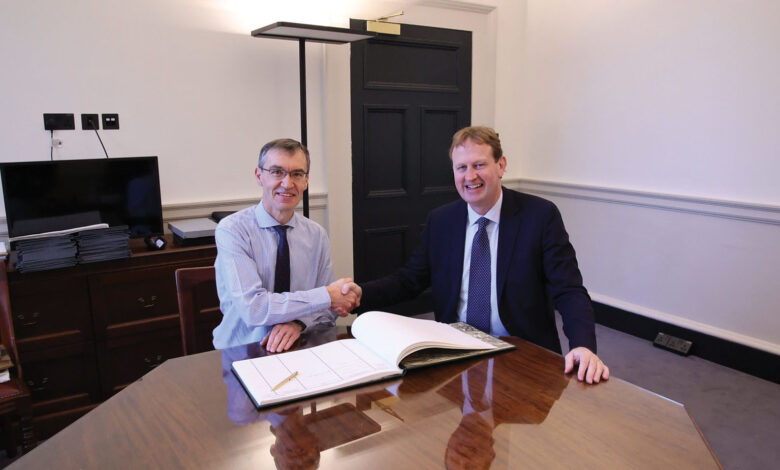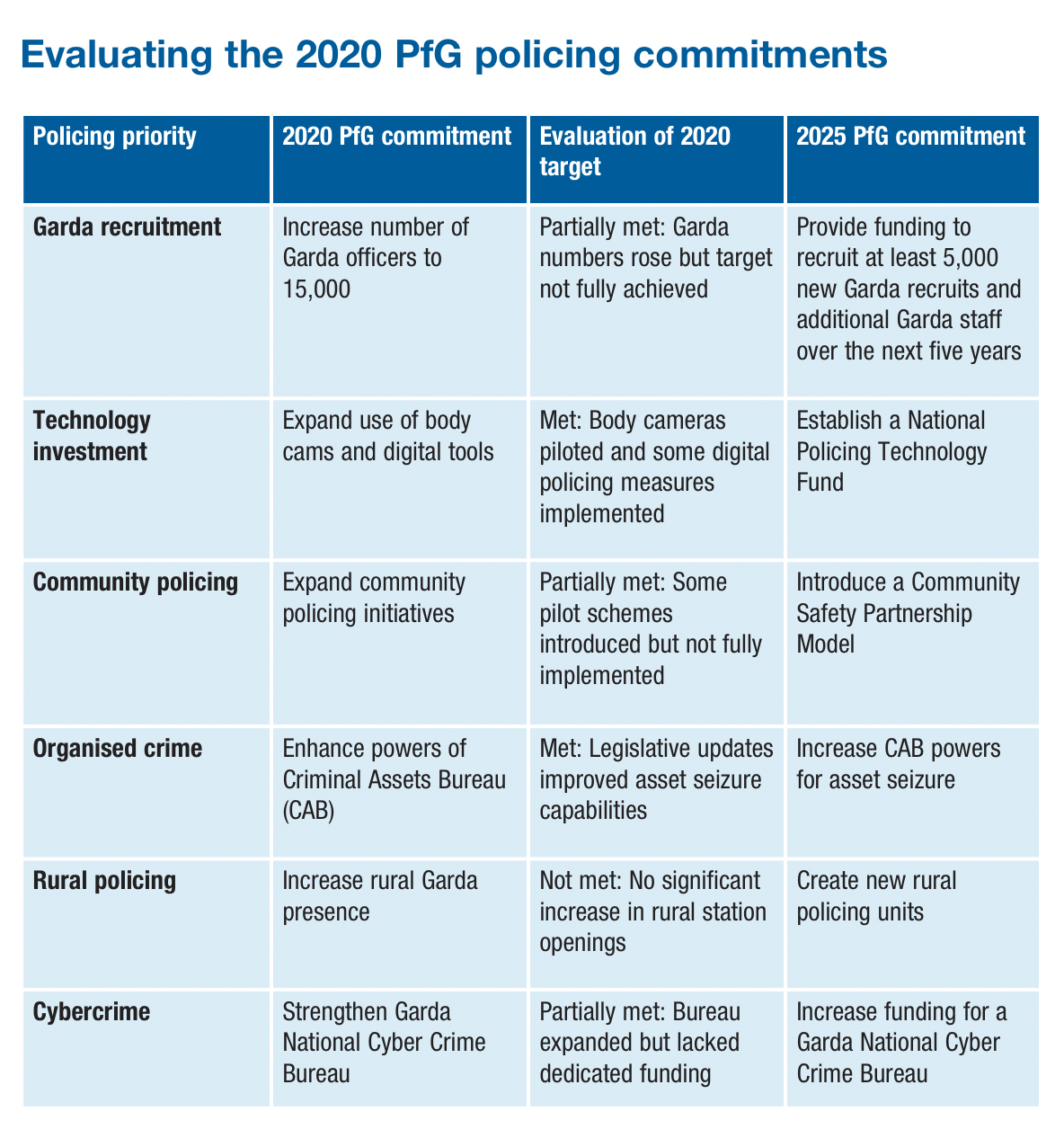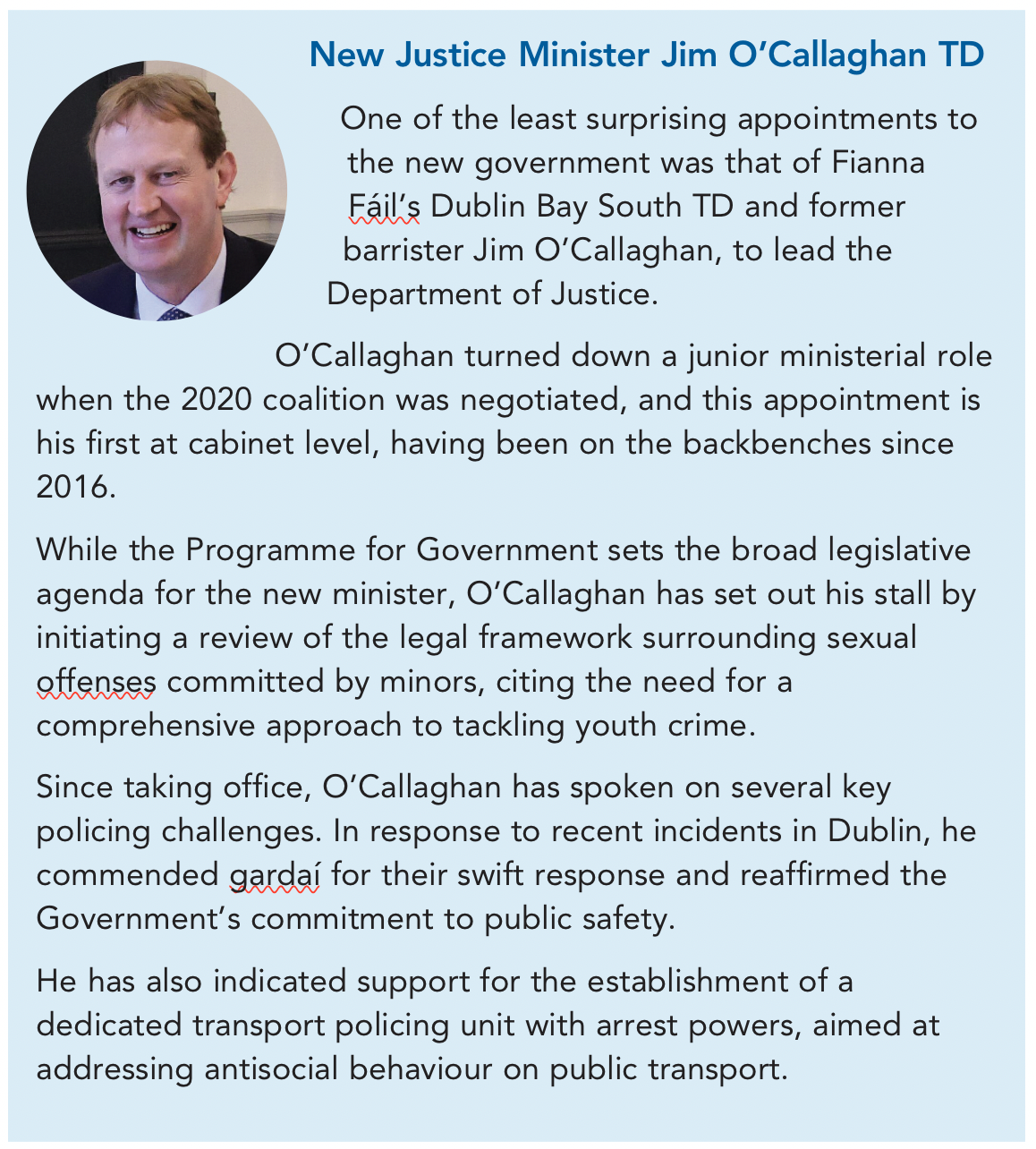What the Programme for Government means for the future of policing

After a mixed record on meeting policing targets in the 2020 Programme for Government (PfG), the 2025 PfG contains less specific targets from government for policing improvement, with enhancing digital skills a key priority alongside increasing the number of Garda staff and officers.
A key commitment in the 2025 PfG is the expansion of the numbers of staff and officers at An Garda Síochána. The PfG outlines a commitment to “provide funding to recruit at least 5,000 new Garda recruits and additional Garda staff over the next five years”. These efforts are to be supported by additional funding for Garda training colleges and incentives to encourage retention.
The PfG also promises increased investment in equipment and technology, with a focus on digital policing capabilities. New mobile units and an expanded fleet are planned, alongside enhanced access to body-worn cameras and modern forensic tools. A new National Policing Technology Fund will be established to support the rollout of real-time crime monitoring and predictive policing analytics.
Addressing organised crime remains a priority in the new PfG. The 2025 PfG pledges continued funding for the Garda National Drugs and Organised Crime Bureau, with increased cross-border cooperation to disrupt criminal networks. The Government aims to introduce legislative reforms aimed at expanding asset seizure powers under the Criminal Assets Bureau (CAB), allowing for quicker intervention against suspected organised crime operations.
Community policing
The PfG outlines plans for a renewed focus on community policing, aiming to strengthen ties between gardaí and local communities. The Government aims to introduce a Community Safety Partnership Model, aimed at promoting collaboration between gardaí, local authorities, and social services to prevent crime at the local level.
There is also a commitment to increasing the number of gardaí stationed in rural areas, reversing previous trends of centralisation in large settlements. New rural policing units will be established aiming to improve response times and deter crime in isolated communities.
Reform
The Government aims to modernise policing structures through administrative and legislative reforms. A review of the Garda Síochána Act is set to take place, with a focus on streamlining oversight mechanisms and improving Garda accountability. The establishment of an independent policing standards commission is proposed to monitor performance and address complaints more efficiently.
The PfG also commits to a review of sentencing guidelines for serious crimes, aiming to ensure consistency and proportionality in judicial decisions. Reforms will include expanded judicial training in areas such as domestic violence and coercive control.
Cybercrime
In the context of the growing threat of cybercrime, the 2025 PfG includes a pledge to establish a National Cyber Crime Unit, expanding on the existing Garda Cyber Crime Bureau. If established, the unit will aim to focus on combating online fraud, data breaches, and child exploitation, with new legislation to strengthen digital forensics capabilities.
Online safety is also addressed, with the introduction of tougher penalties for cyber harassment and an expansion of digital literacy programs to educate young people about online risks.
Analysis
The focus on increasing Garda numbers, enhancing crime prevention tools, and tightening legal frameworks reflects a government intent on addressing growing public concerns around crime and safety.
While community policing remains an important aspect, the broad strategic approach reflects a move to the right on justice and policing towards a tougher stance on crime, reinforced by digital and legislative enhancements. However, as shown by the previous government’s mixed record on implementing policing policy, the effectiveness of these measures will ultimately depend on successful implementation and sustained funding commitments.





